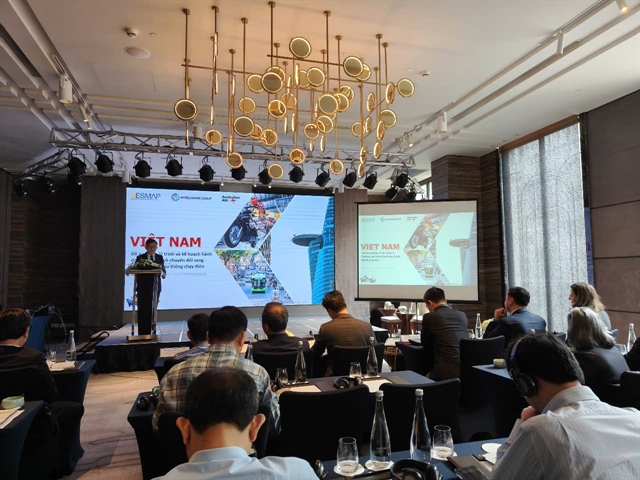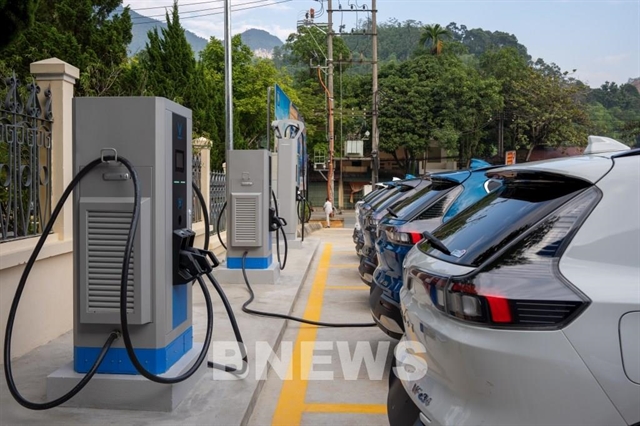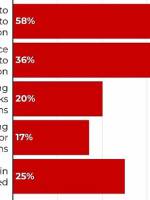
Việt Nam is well-positioned to drive the rapid adoption of electric vehicles, replacing petrol and diesel-powered vehicles and transforming its road transportation sector in the era of electric mobility transition.
To prepare for this transition, Việt Nam must develop charging infrastructure and ensure a stable electricity supply. These are two critical pillars in its roadmap to electric vehicles and decarbonising the transportation sector.
Experts shared these insights during the launch of the new World Bank report ‘Việt Nam: Recommendations to the National Roadmap for Electric Mobility Transition‘, held in Hà Nội on Friday.
The report aims to support the Vietnamese Government’s efforts to create a comprehensive policy framework for electric mobility and outlines key recommendations to accelerate the shift to electric vehicles.
In July 2022, Việt Nam’s Prime Minister approved Decision 876, a comprehensive action plan for green energy transportation. The plan targets that by 2030, half of all vehicles in cities and all urban buses and taxis will run on electricity or clean energy. By 2050, 100 per cent of vehicles will be powered by green energy.
This strategy aligns with Việt Nam’s climate commitments under the Paris Agreement and its goal of achieving net-zero emissions by 2050.
Transitioning to electric vehicles could significantly reduce greenhouse gas emissions, cutting 5.3 million tonnes of carbon dioxin, equivalent to eight per cent of Việt Nam’s emission reduction target, by 2030 and 226 million tonnes, equivalent to 60 per cent of the target, by 2050. Additionally, air pollution-related environmental damage costs could drop by US$30 million by 2030 and $6.4 billion by 2050.

From two-wheelers to a sustainable future
Senior transport specialist and lead author of the World Bank report,Bowen Wang, highlighted that two-wheelers are expected to dominate Việt Nam’s vehicle market until 2035.
Currently, Việt Nam ranks as the second-largest market for electric two-wheelers globally, trailing only China. Electric two-wheelers account for 12 per cent of Việt Nam’s total two-wheeler sales.
To accelerate adoption, several policy measures are needed, including financial incentives for consumers, improved safety standards and testing protocols, encouragement of high-capacity electric motorcycles with longer ranges and a gradual phase-out of petrol-powered motorcycles.
With these strategies, the share of electric two-wheelers could rise from the current 12 per cent to 75 per cent by 2035. The report projects a market demand of 12 million electric two-wheelers between 2024 and 2035 to meet this target or 16 million units under an accelerated adoption scenario.
After 2035, Wang pointed out, personal electric cars are expected to become the predominant mode of transport in Việt Nam.
A robust charging infrastructure will make electric vehicles the preferred choice for first-time car buyers. The World Bank report predicts that electric cars will comprise 93 per cent of car sales from 2036 to 2050, with demand reaching 51 million units by 2050.
Despite being a small fraction of registered vehicles, just two per cent, buses and trucks contribute 67 per cent of transport emissions.

To meet the target of 100 per cent electric urban buses by 2030, Việt Nam will need to phase out 9,600 diesel buses. Specifically, Hà Nội and HCM City require 6,000 and 4,500 additional electric buses, respectively, to achieve public transport goals.
For trucks, developing electric vehicles under five tonnes is seen as a promising solution. Heavy-duty trucks, however, will require enhanced fuel standards and shifts to alternative freight modes like rail and waterways to curb emissions, he said.
The report estimates that the transition to electric vehicles could save Việt Nam up to $498 billion in oil imports from 2024 to 2050. It is also projected to create 6.5 million jobs in manufacturing by 2050.
By committing to this transformative journey, Việt Nam is poised to lead the global electric mobility transition while achieving significant economic, environmental and social benefits.
Prepare for increased power demand
The transition to electric vehicles will have significant implications for Việt Nam’s energy sector, necessitating proactive planning to meet rising electricity demand.
Before 2030, the energy demand from electric vehicles is not expected to put significant pressure on electricity production. Most of the charging needs during this period will focus on electric motorcycles, which dominate Việt Nam’s electric vehicle landscape.
However, the energy impact will escalate after 2030 as the adoption expands to passenger cars and commercial vehicles, including small trucks and buses.
Currently, Việt Nam has approximately 150,000 electric vehicle charging ports, primarily located in residential buildings, shopping centres, car parks and fuel stations.
Establishing a robust network of electric vehicle charging stations will require substantial investment of $2.2 billion by 2030, $13.9 billion by 2040 and $32.6 billion by 2050.
The growing use of electric vehicles will increase electricity consumption and intensify peak demand beyond the current projections in the government’s Power Development Plan 8 (PDP8), approved in May 2023.

According to the World Bank, by 2030, an additional four per cent transmission capacity will be needed. By 2050, this figure could rise to 15 per cent to support all of electrification of road transport.
To meet these demands, Việt Nam must invest up to $9 billion in the power sector by 2030 and an average of $14 billion annually between 2031 and 2050 to expand electricity generation and grid infrastructure beyond PDP8 estimates.
World Bank Energy Practice Manager for East Asia and the Pacific, Jie Tang, emphasised the need to minimise the impact of EVs on the power sector by improving grid efficiency, promoting battery storage solutions, shifting passenger and freight transport modes and encouraging daytime charging at public stations during off-peak hours.
The World Bank report suggests Việt Nam should focus on several key areas to ensure a successful electric vehicle transition, including strengthening manufacturing capabilities for electric vehicles, fostering demand through targeted subsidies and tax benefits and training a high-skilled workforce to support this multi-sectoral transition.
The lead author of the WB report, underlined the complexity of the electric vehicle transition, describing it as a multi-sectoral challenge requiring a cohesive ecosystem.
“The first critical step is establishing an intergovernmental agency to lead and coordinate efforts, ensuring cost optimisation and effective implementation,” Wang said.
The World Bank’s Country Director for Việt Nam, Cambodia and Laos, Mariam J. Sherman, said: “Transitioning to green transportation with electric vehicles is a significant challenge, but Việt Nam’s commitment is a crucial starting point. Success will require close collaboration among government ministries, private investors and the public to reshape vehicle markets, mobility practices and energy usage.”
By addressing these challenges and leveraging opportunities, Việt Nam is poised to become a leader in the global shift to sustainable and electrified transportation, she said.
Khanh Linh (VNS)




